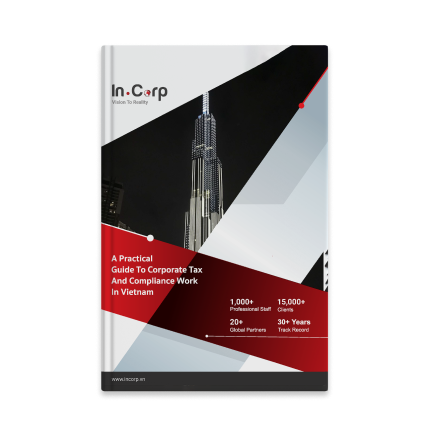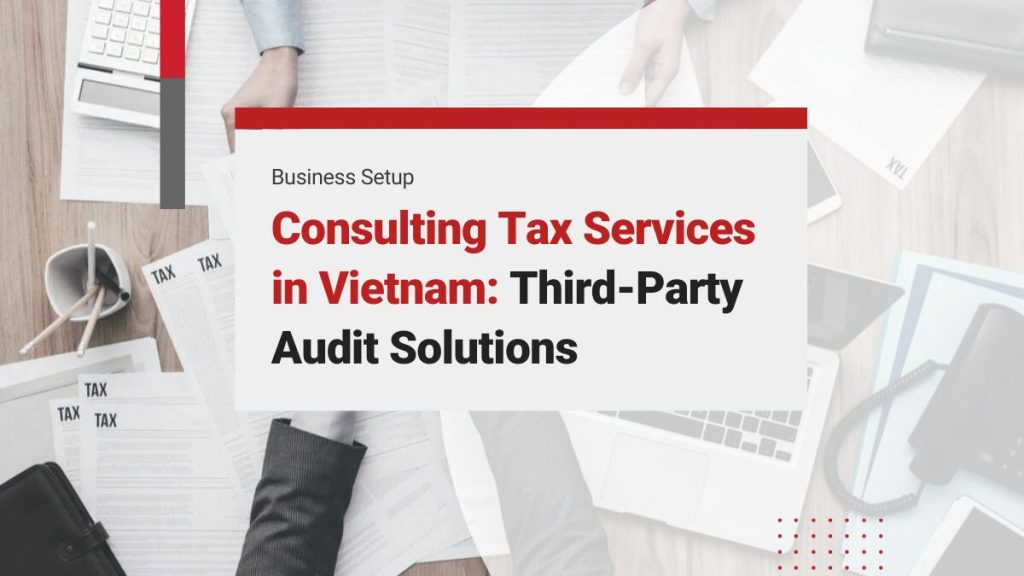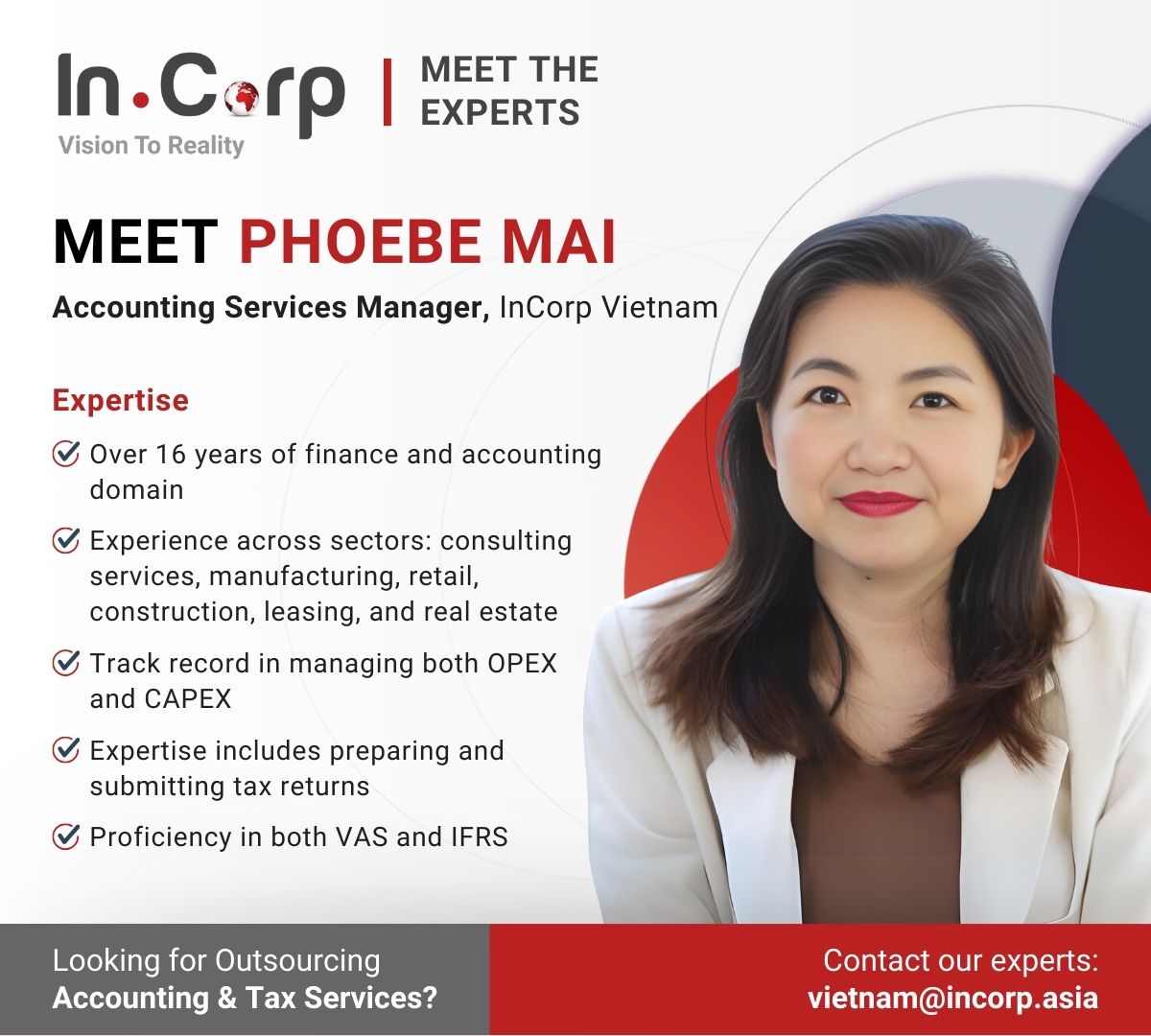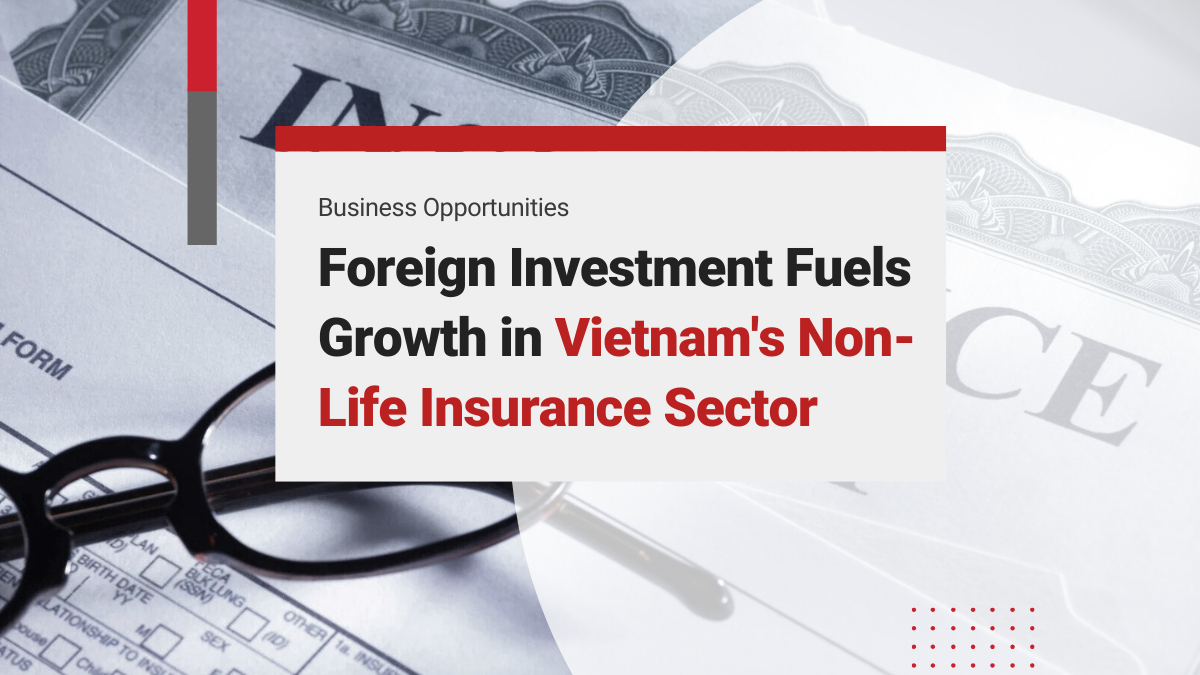In the dynamic landscape of the current market economy, the demand for Tax Consulting services extends beyond FDI companies to encompass a growing number of limited liability companies, joint-stock companies, and businesses. Given that taxes constitute a significant portion of an enterprise’s total costs, senior managers are increasingly turning to Tax Consulting services to navigate the intricate tax landscape, aiming to minimize tax burdens while ensuring strict adherence to the state’s regulations.
Tax Consultants, essential in the industry and audit firms, need deep business insight and up-to-date knowledge of evolving tax laws to effectively navigate their roles. Tax experts specialize in interpreting and monitoring changes in tax laws to develop optimal strategies for clients within legal frameworks. This article highlights the pivotal role of Expert Consulting Tax Services in Vietnam, focusing on the importance of third-party audits and advisory solutions in navigating the country’s complex tax landscape for client benefit.
Looking for Tax Consultant Outsourcing in Vietnam? Check out InCorp Vietnam’s Third-party Audit & Tax Advisory Services
Consulting Tax in Vietnam – Tax Consultant
A Tax Consultant, also known as a tax advisor, plays a pivotal role in helping clients navigate the intricate world of taxation in Vietnam. These professionals are instrumental in assisting businesses, including joint-stock companies and corporations, in making informed financial decisions that lead to substantial tax savings. Through detailed interviews with clients, Tax Consultants gather crucial information about their financial situations and craft strategic approaches aimed at reducing tax obligations. This involves identifying opportunities to leverage tax credits and deductions effectively.
The primary responsibility of tax consultants is to ensure that their clients fulfill all tax obligations in adherence to the state’s regulations. This involves not only minimizing tax burdens but also guaranteeing compliance with the intricacies of tax law. Being the vanguards in tax-related matters, tax consultants can effectively represent companies, resolving tax-related issues and providing guidance on activities directly linked to corporate tax.
Engaging the services of a tax consultant in Vietnam extends well beyond traditional tax preparation. Their role encompasses minimizing tax liability, strategically capitalizing on deductions, and adeptly managing complex tax situations. With specialized training in tax law or accounting, tax consultants provide insights that go beyond routine tax filing. They address inheritance issues, guide businesses through charitable giving strategies, and offer solutions tailored to intricate financial scenarios.
While fees vary based on the consultant’s skill and experience, the financial advantages gained through expert tax planning often outweigh the costs. For those needing assistance beyond taxes, financial advisors can collaborate with tax consultants to create comprehensive financial plans aligning with broader objectives.
Distinguishing themselves from tax preparers, tax consultants in Vietnam typically possess advanced education in areas such as accounting, business, finance, or tax law. Many tax consultants hold prestigious credentials like a certified public accountant (CPA) license or an enrolled agent certification, underscoring their expertise in navigating the complexities of taxation. In the rapidly evolving landscape of tax laws, staying informed is paramount. Tax consultants engage in continuous education by participating in relevant courses, ensuring they remain abreast of the latest developments and amendments.
Phoebe Mai, CPA, brings over 16 years of experience as a finance leader and Chief Accountant in various sectors. Skilled in managing Operational Expenditure (OPEX), Capital Expenditure (CAPEX), and cash flow, her expertise shines in ensuring accurate, timely financial statements per Vietnamese Accounting Standards (VAS) and International Financial Reporting Standards (IFRS).
Meet Phoebe Mai, CPA – InCorp Vietnam’s Accounting Services Manager, ready to assist with Audit and Compliance advice
What Does a Tax Consultant Do?
The role of a tax consultant involves a multifaceted approach, primarily focusing on ensuring businesses adhere to applicable tax regulations while proactively mitigating potential tax risks. Tax consultants are instrumental in identifying effective strategies to reduce tax liability, control tax costs, and uncover deductions and credits. Their responsibilities extend to calculating taxes for portfolios, staying abreast of changes in tax laws, and meticulously preparing and submitting tax returns to clients.
A tax consultant’s scope also encompasses preparing tax payments and reports and offering valuable tax accounting advice to both clients and internal company departments. When faced with intricate tax problems, these professionals engage in thorough evaluation and research to identify viable solutions. Staying ahead of the curve, they continuously research, analyze, and explain changes in tax laws specific to the country they operate in.
Beyond compliance, tax consultants play a crucial role in identifying tax savings and recommending strategies to enhance profits. They are adept at elucidating tax issues related to all business activities to senior management, ensuring transparency and understanding across the organization. Moreover, Tax Consultants actively contribute to maintaining financial practices and records that align with accepted Vietnam accounting and auditing standards, providing invaluable support in legal or audit disputes.
Tax consultants offer a spectrum of services designed to not only minimize tax burdens but also optimize overall financial strategies. Here are some illustrative examples of the valuable services provided by tax consultants:
– Researching tax laws for minimal taxation;
– Assistance in the reduction of penalties previously imposed
– Expertise in payment arrangements towards crafting an offer in compromise or setting up an installment agreement;
– Maximizing contributions to tax-advantaged accounts such as Individual Retirement Accounts (IRAs), Health Savings Accounts (HSAs), and 529 plans;
– Strategic tax scenario analysis to determine the best tax strategy;
– Assistance towards availing advantages of tax credit and deduction;
– Offer guidance on optimizing the timing of income or deductions at year-end;
– A thorough examination of prior-year tax returns.
Advantages of Engaging a Tax Consultant
Engaging the services of a tax consultant can provide businesses with a myriad of advantages, particularly in navigating the intricate landscape of tax laws and regulations. Here are some compelling ways in which a tax consultant can be instrumental for businesses:
- Maximizing Deductions: Tax consultants bring a wealth of knowledge on the latest tax laws and regulations, allowing them to identify potential deductions that might be overlooked by in-house bookkeepers or accounting software. Their expertise can result in increased tax savings and enhanced financial efficiency.
- Reducing Filing Errors: Competent tax professionals are adept at quickly identifying errors in computations or mistakes made during tax preparation. Addressing these issues before filing, helps businesses avoid penalties from the IRS. Additionally, tax consultants can review prior years’ tax returns, ensuring accuracy and compliance.
- Peace of Mind in Audits: In the event of an IRS audit, a tax consultant becomes a valuable ally. With in-depth knowledge of tax laws and experience dealing with the IRS, they can advise and explain choices to mitigate the risk of an audit. Should an audit occur, a tax consultant is well-positioned to defend the business effectively.
- Strategic Decision-Making: Tax consultants offer valuable insights and advice on strategic business choices, such as ownership structures, investments, and compensation plans. By considering the positive and negative tax consequences of these decisions, businesses can make informed choices that minimize tax liability.
- Future Planning: Keeping businesses informed about pending and proposed tax legislation, tax consultants enable the development of contingency plans. This proactive approach ensures that businesses are well-prepared and can adapt seamlessly to new regulations, preventing any surprises.
- Organizing Tax Records: The IRS mandates the retention of specific records, receipts, and paperwork for extended periods. Tax consultants play a pivotal role in organizing these documents, ensuring that businesses can readily access essential information and remain prepared for potential audits.
What is the Cost of Hiring a Tax Consultant?
The cost of hiring a tax consultant is influenced by various factors, making it a variable investment tailored to individual needs. Location stands out as a significant determinant, with prices often peaking in areas where the cost of living is higher. The complexity and scope of your tax situation also play a pivotal role, directly impacting the overall cost. In essence, the more intricate your tax scenario, the higher the associated fees. Additionally, if your situation necessitates highly specialized knowledge of tax codes, the consultant’s fees will align with their qualifications.
Consider a scenario where a straightforward tax return needs preparation for you and your family. As per data from the National Society of Accountants (NSA), the average cost for preparing Form 1040 without itemized deductions is US$220, and it rises to US$323 for an itemized Form 1040 with Schedule A. While this might seem a modest expense, it ensures that your tax matters are handled accurately, especially if you anticipate a significant refund from the government.
On the corporate front, the average cost of having a tax firm prepare Form 1120 – the filing required for corporations – is approximately US$913. For more complex situations involving Form 706, which is necessary for some estates and executors, the average cost exceeds US$1,300, according to NSA data.
Ultimately, the cost of hiring a tax consultant is an investment in accuracy, expertise, and peace of mind. Businesses and individuals alike should weigh the benefits of professional assistance against the specific needs of their tax situations to determine the value proposition of engaging a tax consultant. In the subsequent sections, we will delve into the intrinsic value that tax consultants bring to the table, emphasizing how their expertise contributes to the optimization of financial outcomes for businesses.
Opting for a tax consultant who exclusively operates online presents businesses with unparalleled convenience and rapid access to answers to their tax inquiries. This virtual approach can be the quickest way to address tax-related questions. However, it’s essential to acknowledge that consultants exclusively working online lack direct physical access to you or your company.
The convenience of online tax consultants comes with potential cost savings, making them an attractive option for businesses operating on a budget. Savings can vary significantly, ranging from US$25 to US$1,200, depending on the level of interaction and contact maintained with the consultant.
Some tax specialists go beyond standard offerings by customizing their services to cater to the unique needs of your business. While general tax professionals may apply a standardized approach to most situations, consultants offering customized services can adapt to specific requirements, providing bespoke solutions. This tailored consulting approach typically incurs higher costs, averaging around US$2,000 or more per year.
Comparison between Tax Consultants and Tax Preparers
Before initiating your search for a tax professional, it’s essential to ascertain your specific needs and choose between a tax consultant and a tax preparer. If your requirement is limited to assistance with tax filing, a tax preparer may suffice. However, for more comprehensive services, a tax consultant is likely the better choice.
Tax preparers are simplified tax professionals who focus on preparing income tax forms, such as Form 1040 or Form 1099, without delving into extensive tax codes. While they commonly assist individuals, some may extend their services to aid business owners in filing for their companies.
In contrast, tax consultants provide a more intricate array of services, addressing complex scenarios like tax issues during divorces or probate cases. Their expertise goes beyond basic income tax returns, offering tailored solutions for diverse situations.
The most qualified tax consultants often hold licenses as Certified Public Accountants (CPA) or Enrolled Agents (EA), possessing the formal education and experience needed for comprehensive strategic advice. About 45% of tax experts hold the EA credential, while approximately 29% are CPAs. However, it’s crucial to note that some tax consultants may only be registered with the IRS, and lack formal education.
This differentiation emphasizes the importance of verifying the qualifications of your chosen tax professional to ensure they meet your specific needs. In summary, the choice between a tax consultant and a tax preparer depends on the complexity of your financial situation and the level of strategic advice required. While tax preparers suit routine filings, tax consultants offer more nuanced and tailored solutions for intricate scenarios. Subsequent sections will delve into the detailed services provided by tax consultants, underscoring their crucial role in third-party audit and advisory solutions for businesses in Vietnam.
Tax Consultant
Tax consulting, also known as tax advising, is an all-encompassing service designed to streamline and optimize your tax affairs before filing. Engaging a tax advisor for tax consulting means you’re not just preparing for the immediate tax season, but also strategically planning for your long-term tax objectives.
A tax consultant’s role is to effectively reduce your tax liabilities across various categories, enabling more efficient management of your tax situation. These professionals are well-versed in tax law and offer financial counseling to navigate complex tax scenarios. The primary aim of tax consulting is to secure the most favorable outcomes on your tax returns.
Staying abreast of the latest tax law amendments is a key aspect of their expertise. This ensures that you are thoroughly informed about all pertinent tax obligations, both at the state and federal levels.
When you opt for tax consulting services, you can expect a range of benefits, including:
– Strategies for lowering your overall tax burden.
– Tactics to reduce tax liabilities, particularly in the context of retirement planning.
– Financial guidance aimed at tax reduction.
– Assistance in adhering to all tax regulations and compliance requirements.
– Insights into understanding and leveraging the tax model for improved tax outcomes.
– Expert advice on current taxation laws and legislative changes.
Tax Preparer
Tax preparation, in contrast to tax consulting, involves the actual process of calculating and filing your tax returns. Tax preparers meticulously review your financial accounts and income to determine the exact amount of tax that you or your business owe to the government.
There’s a plethora of tax preparation software available online that can assist in computing and preparing your tax filings. Additionally, some individuals opt to handle their tax preparation independently.
Tax preparers are equipped to handle tax returns for both individuals and small businesses. They are responsible for calculating and filing your income tax return. With a solid grasp of tax laws, they thoroughly examine your income statements, business expenditures, and more to identify which expenses could lead to substantial tax deductions.
Moreover, they apply relevant deductions and adjustments to ensure you pay no more than what is necessary at the end of the tax year. Tax preparers leverage their expertise in financial analysis, accounting, spreadsheet management, and tax preparation software to alleviate the burden and complexities of tax filing for you.
Locating a Tax Consultant: A Step-by-Step Guide
Embarking on the journey to find a tax consultant signifies a crucial step in avoiding IRS complications, saving money, and gaining valuable insights for your business. Beyond mere number-crunching, a proficient tax consultant comprehends the implications of those numbers for your business and effectively communicates this information to you. As you evaluate potential tax consultants, consider posing the following questions to ensure you choose the most suitable professional for your business:
- Expertise Alignment with Your Business Type
Inquire about the consultant’s expertise with clients in areas relevant to your business. Understanding your business type and industry is imperative. For instance, a restaurant owner faces specific accounting issues related to tips and wages, while a construction company owner navigates subcontracting complexities. Opt for a tax consultant with a track record of working with businesses similar to yours, showcasing a deep understanding of your industry intricacies.
- Years of Tax Experience
Explore the number of years of tax experience the consultant possesses. While foundational knowledge is common among tax consultants, opting for one with several years of experience in a reputable firm is advisable. Extensive experience signals a broader training background and a comprehensive understanding of handling business taxes.
- Representation in Audits
Determine whether the tax consultant is willing to represent you in case of an audit. A professional consultant should confidently stand by their recommendations and be prepared to navigate audit proceedings on your behalf. If a candidate hesitates to engage in audit representation, it may be prudent to consider alternative options.
- Clarity on Handling
For larger tax consultancy firms, inquire about the team handling your business matters. Identifying your designated point of contact and ensuring your comfort with the advisor assigned to you is essential. If multiple individuals will handle your business’s tax concerns, ascertain that you’ll consistently be assigned to a knowledgeable professional well-versed in your specific business type and industry.
Conditions for Obtaining a Tax Procedure Service Practitioner Certificate
To be eligible for a tax procedure service practitioner certificate, the applicant must meet specific criteria outlined as follows:
- Full Civil Act Capacity: The individual seeking the tax procedure service practitioner certificate must possess full civil act capacity.
- Educational Requirements: The applicant should hold a university degree or higher in fields such as economics, finance, accounting, auditing, or other majors as stipulated by the Minister of Finance.
- Practical Experience: A minimum of 36 months of practical working experience in finance, accounting, auditing, and tax is required after graduating from university.
- Successful Exam Completion: The applicant must successfully pass an exam covering tax law and accounting to obtain the tax procedure service practitioner certificate.
Additionally, individuals holding an auditor’s certificate or an accountant’s certificate issued by a competent authority according to regulations may be granted a tax procedure service practitioner certificate without undergoing the exam.
For tax agent employees, full participation in a knowledge update program is mandatory to maintain the license to practice tax procedure services.

Guides
A Practical Guide to
Corporate Tax & Compliance Work
in Vietnam
the rates are, and when to submit them.

Conclusion
Expert Consulting Tax Services are pivotal in the Vietnamese business landscape, offering invaluable third-party audit and advisory solutions. With a focus on minimizing tax liabilities while ensuring regulatory compliance, these professionals bring extensive knowledge of tax laws and a commitment to strategic financial planning. As businesses in Vietnam navigate the intricate realm of tax regulations, the expertise of tax consultants emerges as a crucial asset, contributing to financial optimization and legal adherence.

clients worldwide

professional staff

incorporated entities in 10 years

compliance transactions yearly








